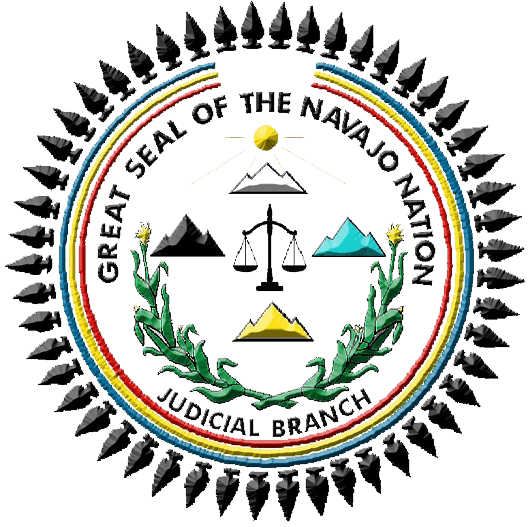Organization

Organization
Ultimate Authority
The Chief Justice has ultimate authority over Probation and Parole Service matters, and may delegate authority pursuant to these Standard Operating Procedures.
In addition, the Chief Justice has authority and responsibilities over juvenile probation offices pursuant to the Children’s Code.
9 N.N.C. § 1053 provides:
A. | The Chief Justice of the Navajo Nation may establish juvenile probation offices at each of the agencies comprising the Navajo Nation. The Chief Justice of the Navajo Nation shall be the appointing authority for all probation office personnel. If probation officers are established by the Chief Justice of the Navajo Nation, he or she shall also establish a classification and compensation plan for all positions in the service in accordance with the personnel rules of the Courts of the Navajo Nation. |
B. | The Probation Offices shall provide the Chief Justice of the Navajo Nation and the Judiciary Committee of the Navajo Nation Council such information as is requested about children coming into contact with the probation offices or the court under the provisions of the Children’s Code. |
Organization Under the Judicial Branch Consolidation Policy
Effective 10, 1997, the Consolidation Policy provides:
The function of the Chief Probation Officer is separate from the Administrative Office of the Courts but under the direct supervision of the Chief Justice. By delegation of the Chief Justice, the Chief Probation Officer provides technical assistance to the judicial districts by coordinating the planning and implementation of a uniform probation program, recommends workload allocations, assures position description compliance of probation officers with standard operation procedures by performing periodic case reviews, compiles statistics and reports, assists court administrators with performance evaluations of probation officers, and performs other assignments as directed by the Chief Justice.
Probation officers help restore stability to individuals, families and communities through client supervision, education, rehabilitation and coordination of treatment services as ordered by the courts. There is only one classification, title and level of probation officer.
Court administrators shall exercise overall management responsibility for daily administration of probation officers, facilities and property. Court administrators shall supervise probation officers for enforcement of workplace regulations for attendance, approve leave, initiate and finalize disciplinary actions. provide program support (e.g. authorize and approve expenses for travel, training. vehicles, equipment, supplies, clerical services) within the constraint of appropriations and budgets, and other administrative purposes not inconsistent with the technical assistance functions of the Chief Probation Officer. The court administrator may delegate supervisory authority only in his or her absence.
Judicial Branch Consolidation Policy, p. 4.
Under the Consolidation Policy, programming and supervision of district PPS offices and personnel is split between the Chief Probation Officer and Court Administrators.
It is expected that the Consolidation Policy will be revised. Any revisions of the above provisions shall be incorporated into these Standard Operating Procedures upon approval by the Judiciary Committee of the Navajo Nation Council.
